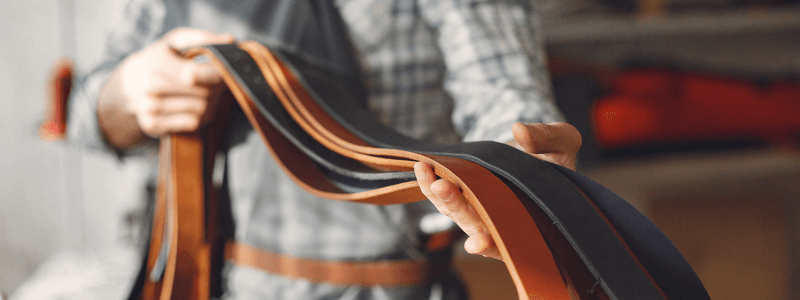The Portuguese leather industry is an important part of the country’s economy and has a long history of producing high-quality leather goods. The industry has evolved over the years, adapting to new technologies and changing consumer demands while still maintaining traditional techniques that are unique to the leather industry in Portugal. In this article, we will explore the history, current state, and future of the Portuguese leather industry.
History of the Portuguese Leather Industry
The history of the Portuguese leather industry dates back to the Middle Ages, when the country was known for its high-quality leather production. The industry was primarily focused on the production of leather for footwear and saddlery. However, over time, the industry evolved to include the production of a wide range of leather goods such as bags, belts, and furniture. During the Age of Discovery, Portuguese navigators introduced the leather industry to Brazil and other parts of South America, where it continues to thrive today. This allowed the Portuguese industry to expand and gain a significant share of the global market.
Modernization and Growth in the 20th century
In the 20th century, the Portuguese leather industry underwent a period of modernization. The introduction of new technologies, such as automated cutting machines, allowed for increased production and efficiency. This modernization led to an increase in the number of leather factories in the country and a corresponding increase in employment opportunities. The industry also saw a growth in exports, as the demand for high-quality leather goods increased globally. This helped to establish Portugal as a major player in the global leather market.
Current State of the Portuguese Leather Industry
Today, the Portuguese leather industry is known for its high-quality products and traditional techniques. The country is home to a large number of leather factories, which employ thousands of workers. The industry also drives economic growth in the country by providing employment opportunities, generating revenue through exports, and attracting investment from foreign companies. The Portuguese leather industry is also known for its sustainability practices. Many leather companies in the country have adopted sustainable practices, such as using eco-friendly materials and recycling waste materials. The industry is also working to reduce its environmental impact by implementing more energy-efficient production methods and reducing water consumption.
Challenges and Opportunities of the Portuguese Leather Industry
In recent years, the leather industry has faced challenges due to the increasing competition from countries with lower labor costs. To stay competitive in the global market, the industry has had to focus on producing high-quality, luxury leather goods and investing in marketing and branding. The Portuguese government has also played an important role in supporting the leather industry. It has implemented a number of policies and programs to promote the industry and encourage investment. This includes providing financial support for research and development, as well as promoting the industry through trade fairs and other marketing initiatives.
The Future of the Leather Industry in Portugal
The future of the leather industry in Portugal looks promising, as the demand for high-quality leather goods continues to grow. The industry is also positioning itself to capitalize on the growing trend of sustainable and eco-friendly products. With its rich history, traditional techniques, and commitment to sustainability, Portugal is well-positioned to continue to thrive in the global market. With the increasing focus on sustainability and ethical production in the fashion and leather industry, Portugal has the opportunity to further establish itself as a leader in ethical and sustainable production of leather goods. The industry’s commitment to traditional techniques, combined with the adoption of modern technologies, will also help it to continue to produce high-quality, luxury leather goods.
Conclusion
In conclusion, the Portuguese leather industry is an important part of the country’s economy, known for its high-quality products and traditional techniques. The industry has faced challenges in recent years, but with the commitment of the industry and government to sustainability, investment in marketing and branding, and focus on producing high-quality, luxury leather goods, the industry has a promising future. In Portugal, the leather industry continues to play a vital role in the local economy, providing employment opportunities, generating revenue through exports, and attracting investment. Additionally, the industry’s commitment to sustainability and eco-friendly practices positions it well to capitalize on the growing trend of consumers seeking out environmentally conscious products. The Portuguese leather industry has a rich history and a bright future, and it will continue to be an important contributor to the country’s economy.

